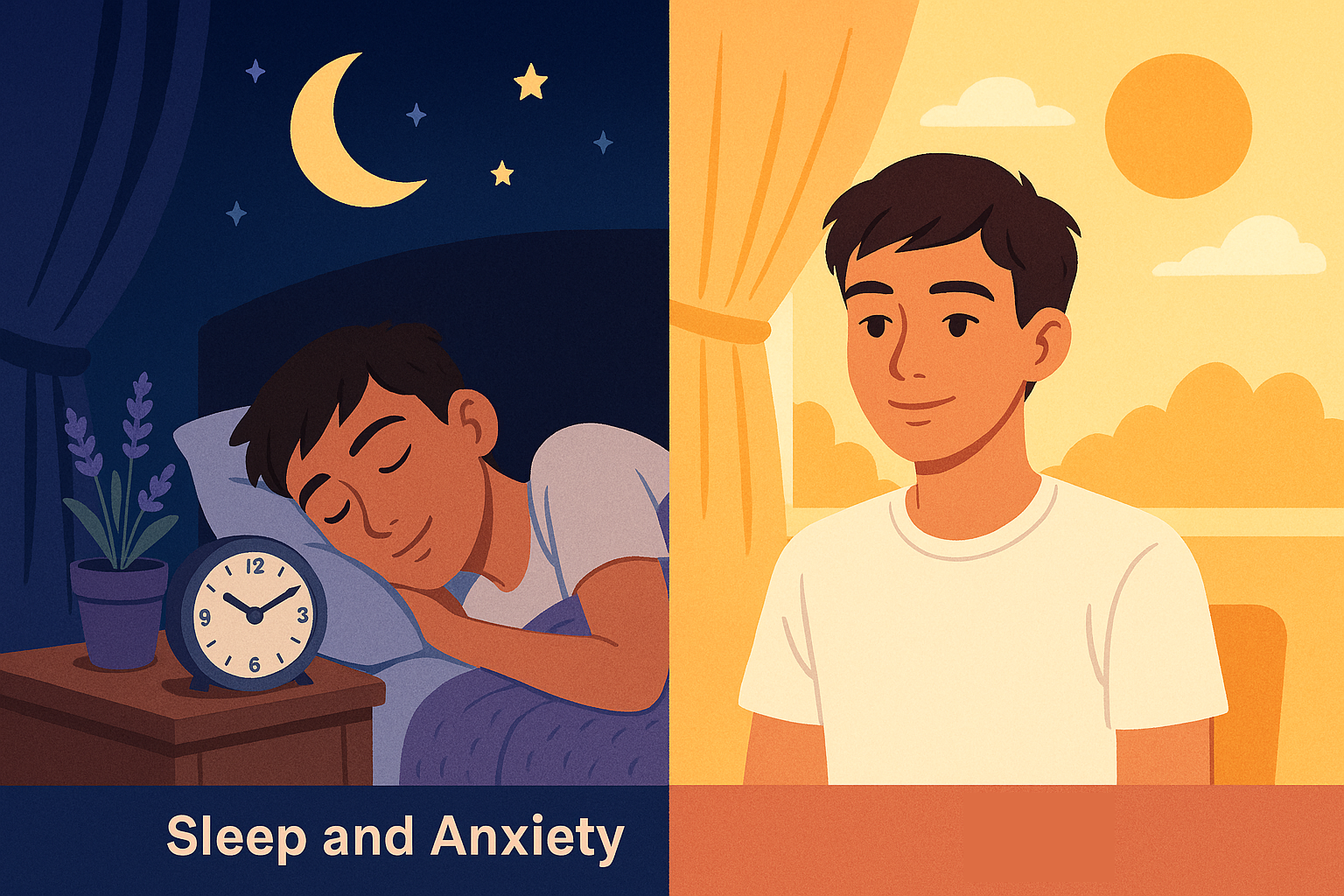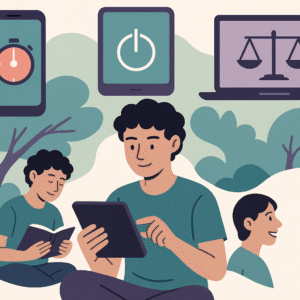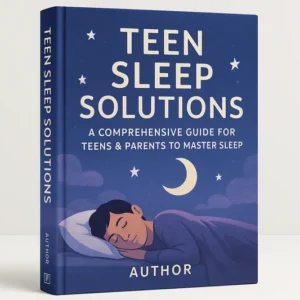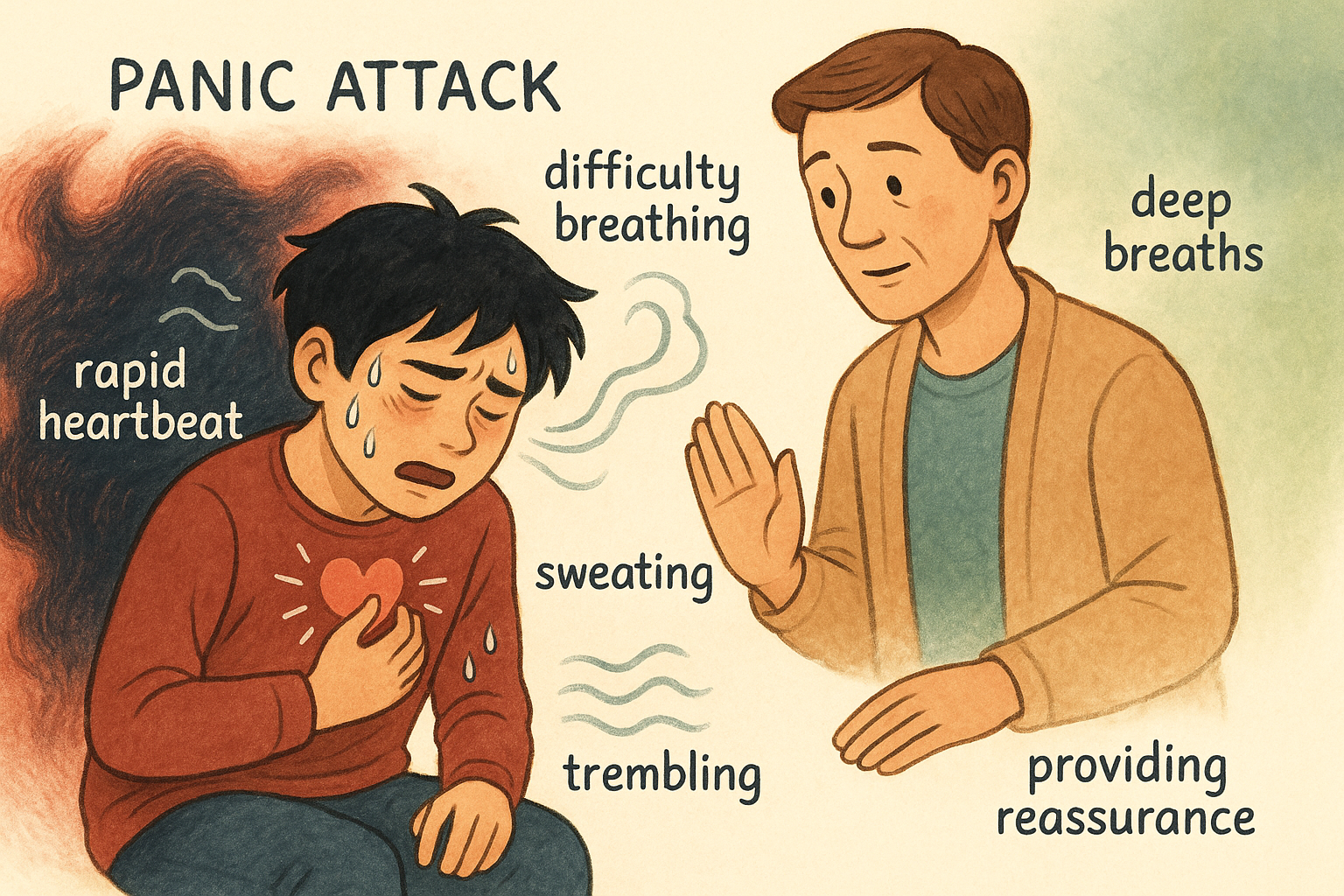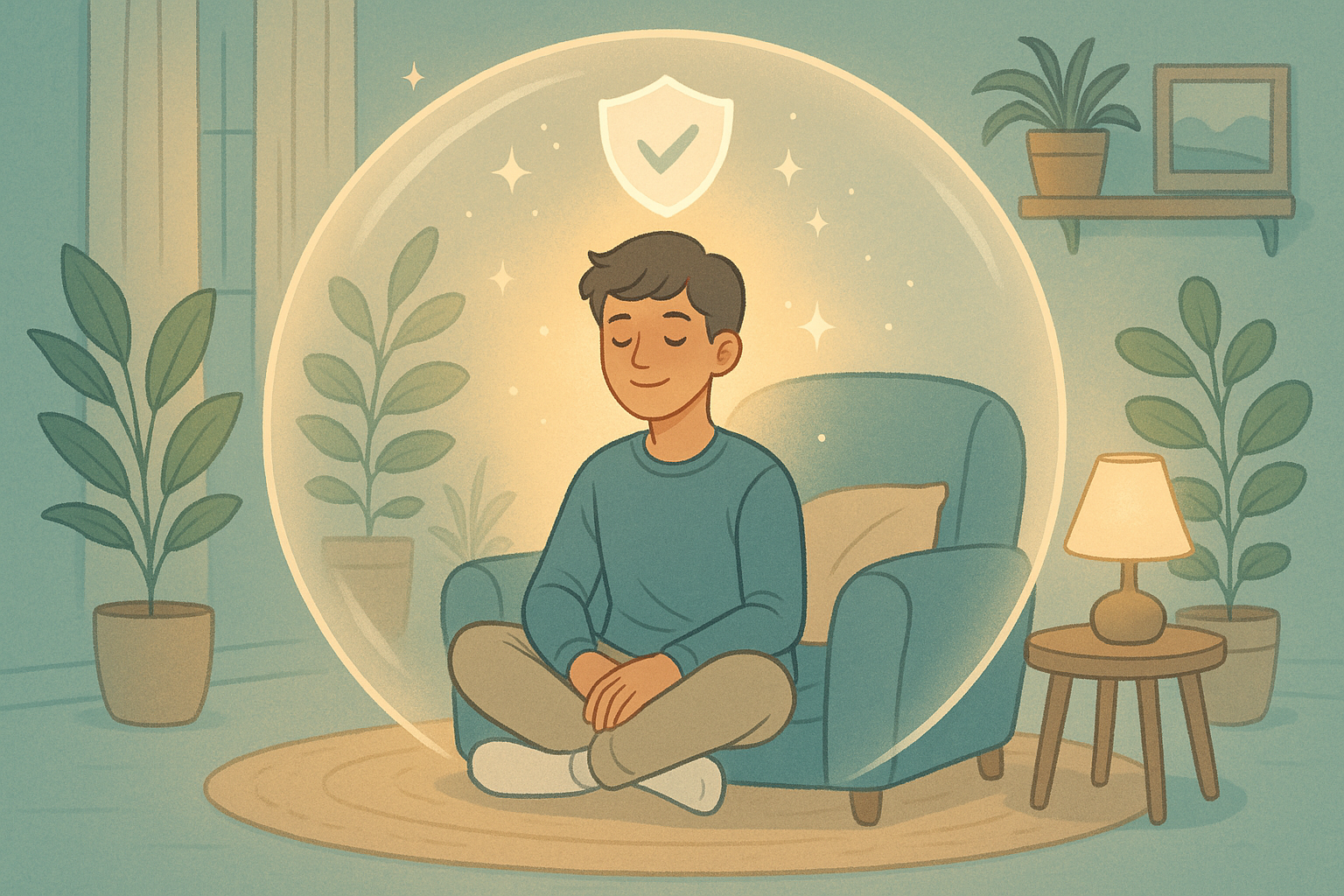Sleep and anxiety share a complex, bidirectional relationship that significantly impacts teenage mental health. Understanding this connection is crucial for parents seeking to help their anxious teens develop better coping strategies and overall well-being.
The Sleep-Anxiety Cycle in Teenagers
During adolescence, natural biological changes shift teens’ circadian rhythms, making them naturally inclined to stay up later and sleep in longer. However, anxiety can severely disrupt these already challenging sleep patterns, creating a vicious cycle where poor sleep increases anxiety, and increased anxiety makes quality sleep even more difficult to achieve. Sleep techniques for teens are especially crucial
How Anxiety Affects Teen Sleep
Anxious teens often experience a “busy mind” at bedtime, with worries about school, relationships, or future events preventing them from relaxing into sleep.
Anxiety can cause physical symptoms like rapid heartbeat, muscle tension, and restlessness that make it difficult to fall asleep or stay asleep throughout the night.
Anxious teens may remain in a state of high alert, making their bodies resistant to the relaxation necessary for quality sleep.
Some teens may avoid going to bed altogether, fearing the quiet time that allows anxious thoughts to surface.
How Poor Sleep Fuels Teen Anxiety
Sleep deprivation significantly impacts the brain’s ability to regulate emotions, making teens more reactive to stressors and less able to cope with anxiety-provoking situations.
Lack of sleep impairs concentration, memory, and decision-making abilities, which can increase anxiety about academic performance and daily tasks.
Poor sleep elevates cortisol levels, the body’s primary stress hormone, creating a biological environment that promotes anxiety.
Well-rested teens are better equipped to handle life’s challenges, while sleep-deprived teens are more vulnerable to anxiety triggers.
Recognizing Sleep-Related Anxiety Symptoms
Parents should watch for these signs that anxiety is impacting their teen’s sleep:
Procrastinating bedtime or expressing fear about going to sleep
Waking up multiple times during the night due to worry or physical anxiety symptoms
Waking up much earlier than necessary and being unable to return to sleep
Experiencing disturbing dreams that reflect anxious thoughts or fears
Feeling extremely tired during the day despite spending adequate time in bed
Creating a Sleep-Friendly Environment
Ensure the sleeping space is cool, dark, and quiet. Consider blackout curtains, white noise machines, or comfortable bedding to create an ideal sleep environment.
Establish a “no screens” rule for at least one hour before bedtime, as blue light can interfere with melatonin production and sleep quality.
Keep the bedroom temperature between 65-68°F (18-20°C) for optimal sleep conditions.
Keep homework, electronic devices, and other stressful materials out of the bedroom to preserve it as a peaceful space.
Developing Healthy Sleep Habits
Encourage teens to go to bed and wake up at the same time every day, even on weekends, to regulate their internal clock.
Develop a calming pre-sleep routine that might include reading, gentle stretching, meditation, or listening to soft music.
Avoid caffeine after 2 PM, as it can interfere with sleep quality even hours after consumption.
Encourage daily physical activity, but not within 3-4 hours of bedtime, as exercise can be stimulating.
Anxiety-Reducing Sleep Techniques
This technique involves tensing and then relaxing different muscle groups, helping to release physical tension and prepare the body for sleep.
Visualizing peaceful, calming scenes can help redirect anxious thoughts and promote relaxation.
Writing down worries or tomorrow’s tasks before bed can help clear the mind and reduce nighttime anxiety.
Deep breathing techniques can activate the body’s relaxation response and ease the transition to sleep.
When to Seek Professional Help
If sleep problems persist despite implementing healthy sleep habits, or if anxiety is severely impacting your teen’s ability to function during the day, it may be time to seek professional support. A mental health professional can help identify underlying anxiety disorders and develop comprehensive treatment plans.
For expert guidance on managing teen anxiety and sleep issues, visit StillNest Health. Our specialized team understands the intricate relationship between sleep and anxiety in teenagers and provides evidence-based treatment approaches.
Remember, improving sleep quality is often one of the most effective ways to reduce teen anxiety. By addressing both sleep and anxiety together, teens can develop better overall mental health and resilience.
Learn more about comprehensive teen anxiety treatment and sleep support at StillNest Health.
Related Help Guide Downloads
-
Foundational Five Bundle For Teen Wellness: Sleep, Stress, Screens, Mood, Body
Original price was: $85.00.$49.00Current price is: $49.00. -
Teen Sleep Solution – A Comprehensive Guide for Teens & Parents to Master Sleep
Original price was: $27.00.$17.00Current price is: $17.00.
